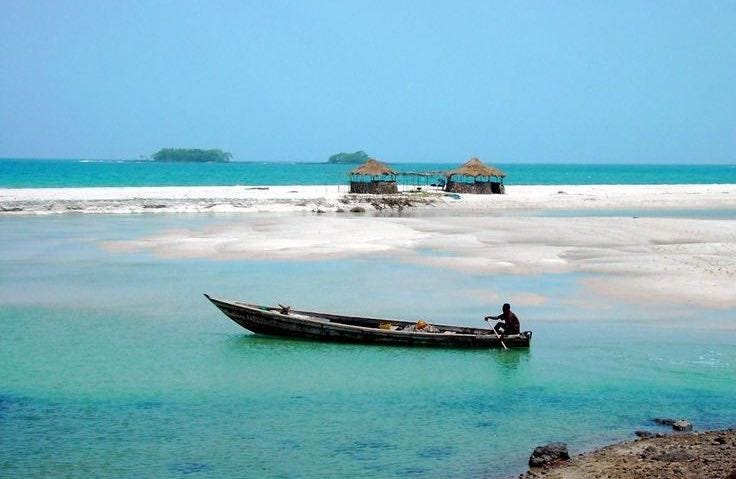Do you have mean world syndrome?
Do you suffer from mean world syndrome? If you consume the average amount of news media then the answer is probably yes. Mean world syndrome is a psychological bias where you believe the world is more dangerous than it actually is. It was George Gerbner who first coined the phrase in the sixties after a lifetime of work studying the effects of television consumption on viewers.
Needless to say, it's not only television that gives you mean world syndrome, the internet plays its part too. I experienced evidence of this recently when I was on holiday in Senegal, staying on an island just off Dakar called N'gor. On the second day, I took the boat to the mainland to spend a day exploring Dakar. It was a fun experience and I found the locals especially friendly.
The next day, two travellers that were staying in my accommodation were surprised to hear about my mini-exploration. Both of them were under the impression that Dakar was unsafe based on what they had read on the internet -- they proceeded to read out an article which was quite terrifying. I told them this wasn't accurate and convinced them to visit which they did and had a great time which goes to show that ignorance is often bliss.
When it comes to travel, the majority of us suffer from a severe case of mean world syndrome. While in Senegal I was given glowing reports of Sierra Leone from two travellers who had lived and worked there for several years. They described the friendly people and stunning beaches which can be compared to the Seychelles but without the crowds.
Most people would baulk at the idea of holidaying in Sierra Leone even though the civil war ended over 20 years ago. We have it etched in our brains that it's unsafe because of the news media and mean world syndrome. The TV and internet are great at keeping war on a loop but once it's over, it'll receive a fleeting mention before the next disaster is given priority in an effort to keep us mean and miserable.
Humankind
One book that looks at the world and humanity from a contrarian viewpoint is Humankind by Rutger Bregman. The book's premise is that humans aren't as bad as we're made to believe. With many years (some of us decades) of news stories telling us how bad humans are, it goes without saying that we have a tainted view on our own species.
[Humankind by Rutger Bregman]
I was raised to believe that the news is good for your development. That as an engaged citizen it’s your duty to read the paper and watch the evening news. That the more we follow the news, the better informed we are and the healthier our democracy. This is still the story many parents tell their kids, but scientists are reaching very different conclusions. The news, according to dozens of studies, is a mental health hazard. First to open up this field of research, back in the 1990s, was George Gerbner (1919–2005). He also coined a term to describe the phenomenon he found: mean world syndrome, whose clinical symptoms are cynicism, misanthropy and pessimism. People who follow the news are more likely to agree with statements such as ‘Most people care only about themselves.’ They more often believe that we as individuals are helpless to better the world. They are more likely to be stressed and depressed.
...
A few years ago, people in thirty different countries were asked a simple question: ‘Overall, do you think the world is getting better, staying the same, or getting worse?’ In every country, from Russia to Canada, from Mexico to Hungary, the vast majority of people answered that things are getting worse. The reality is exactly the opposite. Over the last several decades, extreme poverty, victims of war, child mortality, crime, famine, child labour, deaths in natural disasters and the number of plane crashes have all plummeted. We’re living in the richest, safest, healthiest era ever. So why don’t we realise this? It’s simple. Because the news is about the exceptional, and the more exceptional an event is – be it a terrorist attack, violent uprising, or natural disaster – the bigger its newsworthiness. You’ll never see a headline reading NUMBER OF PEOPLE LIVING IN EXTREME POVERTY DOWN BY 137,000 SINCE YESTERDAY, even though it could accurately have been reported every day over the last twenty-five years.
[/Humankind by Rutger Bregman]
If you knew someone that was untrustworthy, a serial liar and had been accused of being part of a criminal gang, would you take much notice of their opinion? I'm guessing not, however, millions do when consuming content from Robert Murdoch's global media empire. The below quote is taken from the inquiry into News Corp's phone hacking scandal after Rupert Murdoch's son claimed he didn't know about the criminal activities going on under his watch.
"Mr. Murdoch you must be the first mafia boss in history who didn't know he was running a criminal enterprise"
Tom Watson grilling James Murdoch at the phone hacking inquiry
The BBC documentary series The Rise of the Murdoch Dynasty opens the lid on how dangerously influential the Murdoch family is and how susceptible we all are to brainwashing.
The internet is an abusive relationship
In the following interview, Bill Burr compares the internet to an "abusive relationship" based on how people act online. Burr goes on to say that the way many people act online isn't reflected in reality and it's a mistake to get your information from the internet which is detached from reality.
The ostrich effect
The ostrich effect is the tendency to avoid negative information, which can be a bad idea, especially if it concerns your health. You should always see the doctor for a check-up, even if it means receiving bad news. The bad news being sold by the news media isn't comparable though.
If we want to have a fairer, more objective view of the world, reduce our anxiety and be thankful for our lives then the best medicine is to get rid of our toxic news addiction. The news media erodes our mood by broadcasting misery. It's like having a really depressing friend that constantly tells you how bad things are and how things are getting worse. Sooner or later you'd ditch that friend.


